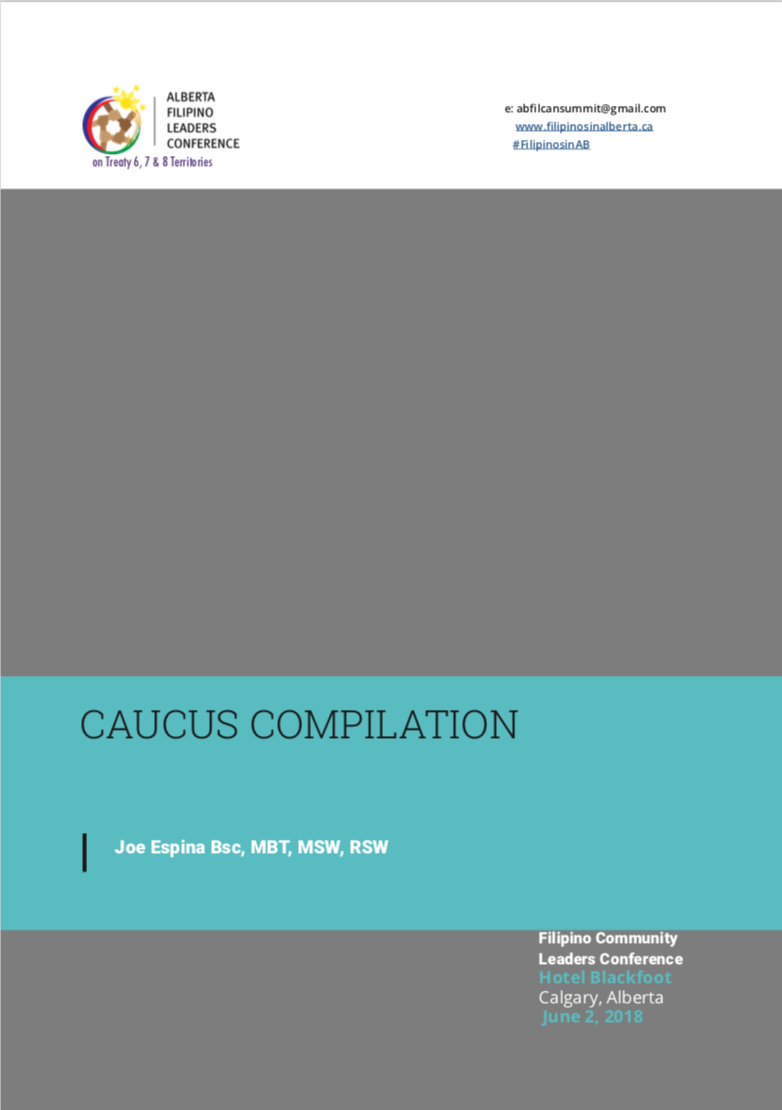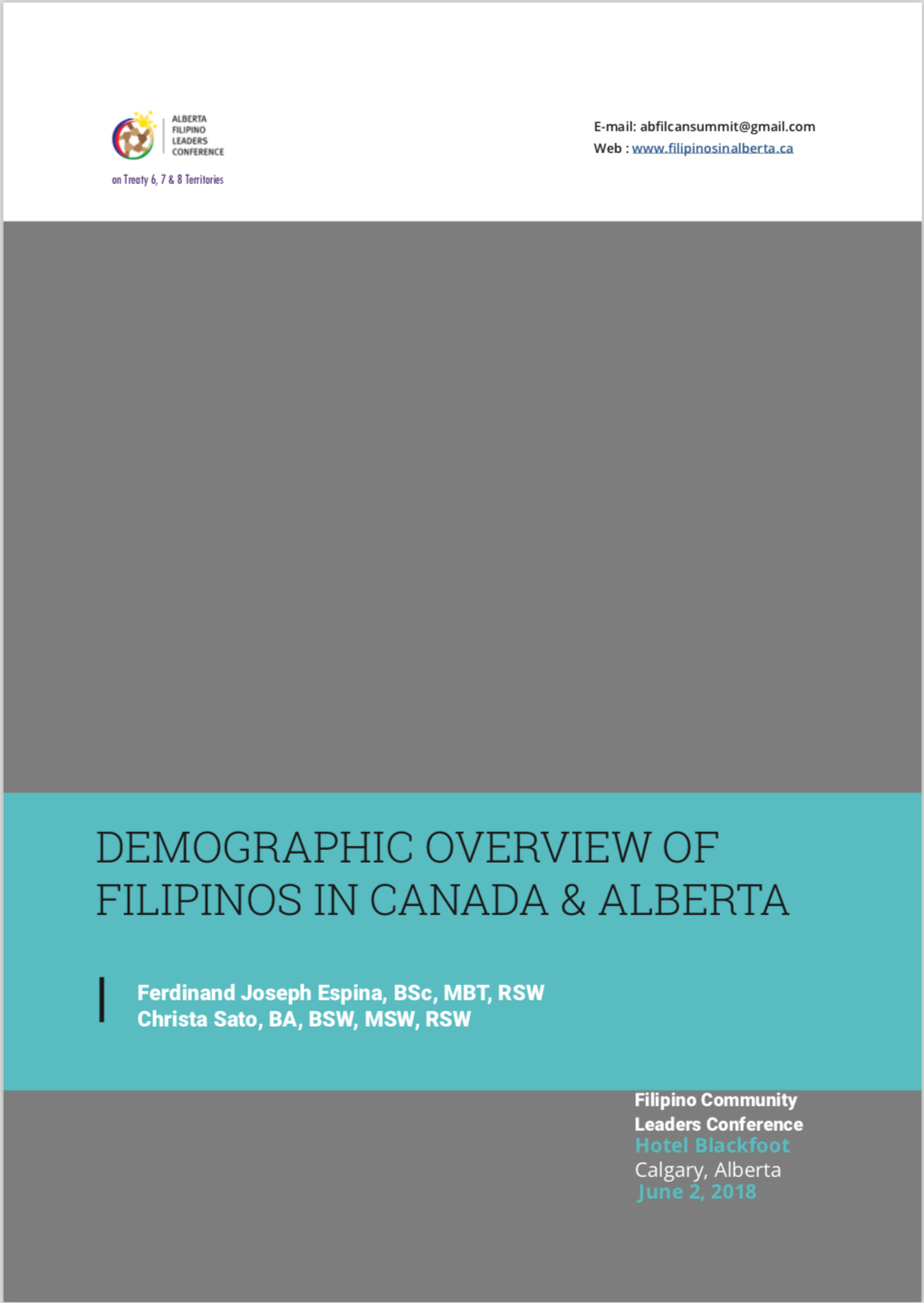Issue Briefs
2018 Caucuses
CAUCUS COMPILATION
Joe Espina Bsc, MBT, MSW, RSW
We had a series of caucuses from The Filipino Advocate/ Filipino Service Worker, Philippine Cultural Centre (PCCP) Kapihan, Babae Council of Women, who answered the following questions.:
- What are the Strengths, Assets & Weaknesses of the Filipino community?
- What are the challenges and issues that you face, that we face as a community?
-
WHAT ARE ACTIONS AND SOLUTIONs we can utilize to face these issues and to strengthen our community?
- What can to do to help us face these issues?’
- How can we increase the cooperation among Filipinos in in Alberta?
- Who are the other organizations/groups in our community that need to be a part of this discussion?
HEALTH & WELLNESS
Joe Espina & Vic Lantion
MENTAL HEALTH
In Canada, families from ethnocultural communities face a number of challenges that exacerbate mental health concerns and therefore a ect family relationships. For instance, newcomer families experience stress related to racism and discrimination experienced in the workplace and society; underemployment; lack of accreditation of foreign credentials; patriarchal ideological values; loss of social status at home and in the community (by both women and men); and pre migration experiences (Wells et al., 2013).
Seniors
The majority of immigrants 65 years of age and older have aged in Canada, with 69.3% having arrived prior to 1981 (Statistics Canada, 2016). According to the latest census, only 3.3% of older immigrants arrived since 2011. Together, the available demographic data on immigration and aging in Canada paints a portrait of an increasingly diverse population and one in which the proportion of older community members is on the rise (Statistics Canada, 2016).
YOUTH
INTEGRATION & YOUNG ADULT INTEGRATION
Data and information drawn from: Sato, C. L. (2017). University education as a process of self-discovery: Processes that facilitated the completion of university by young, second-generation Filipino men in Calgary (Master’s thesis). University of Calgary, Alberta.
HERITAGE & EDUCATION
Mariel Guina & Francia Bodoso
EMPLOYMENT
AND OCCUPATIONAL HEALTH & SAFETY
Material compiled from: Alberta Workers Health Centre (2017) New Alberta Workers: Improving health and safety: Improving workplace health and safety for temporary foreign workers and others new to Alberta workers.
Dr. Ilyan Ferrer, Researcher

PROFESSIONALS
Joe Espina & Cesar Cala, Researchers
The issue of professionals has been explored extensively within Filipino- Canadian research and scholarship. Damasco (2009) and Ronquillo et al. (2011) examined the life histories and migration trajectories of Filipina nurses in Canada while Kelly (2014) examined the social trajectories of 1.5 and 2nd generation Filipinos in Canada.
BUSINESS
Francia Bodoso
Immigrants in Canada have strong propensity to engage in self-employment and private business compared to their native-born counterparts, this is based on the study of Green et al. in 2016. However, the said research
also noted that Filipinos, along with other immigrants from Southeast Asia, Africa, and Latin America, do not show the same entrepreneurial inclination. With Filipinos being the third largest ethnocultural group in Canada, the above result highlights the need to encourage entrepreneurship within the community through government and community support. This timely boost will not only forward economic growth in the community but will help in carving a visible presence in the province.







